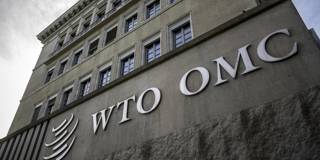The World Trade Organization’s Investment Facilitation for Development Agreement provides developing countries with practical and effective tools to attract foreign direct investment. But it also represents a crucial test for the WTO at a time when the multilateral order is under growing strain.
NEW YORK – Every country is eager to attract foreign direct investment – and for good reason. FDI facilitates capital inflows, creates jobs, drives skills development, and facilitates technology transfers, accelerating economic growth and enabling recipient countries to access global markets.
But global competition for FDI is fierce. To attract it, governments around the world have liberalized their foreign-investment policies, established investment-promotion agencies, and provided multinational firms with numerous incentives. Now, the World Trade Organization is on the verge of introducing a new mechanism to facilitate FDI flows: the Investment Facilitation for Development Agreement (IFDA).
The concept of an investment-facilitation mechanism was first proposed in 2015. After years of preparations, WTO members began negotiations in September 2020, with developing countries taking the lead. More than 120 member countries endorsed the IFDA’s text in November 2023 – an accelerated timeline underscoring developing countries’ urgent need to attract FDI to achieve the Sustainable Development Goals (SDGs).

NEW YORK – Every country is eager to attract foreign direct investment – and for good reason. FDI facilitates capital inflows, creates jobs, drives skills development, and facilitates technology transfers, accelerating economic growth and enabling recipient countries to access global markets.
But global competition for FDI is fierce. To attract it, governments around the world have liberalized their foreign-investment policies, established investment-promotion agencies, and provided multinational firms with numerous incentives. Now, the World Trade Organization is on the verge of introducing a new mechanism to facilitate FDI flows: the Investment Facilitation for Development Agreement (IFDA).
The concept of an investment-facilitation mechanism was first proposed in 2015. After years of preparations, WTO members began negotiations in September 2020, with developing countries taking the lead. More than 120 member countries endorsed the IFDA’s text in November 2023 – an accelerated timeline underscoring developing countries’ urgent need to attract FDI to achieve the Sustainable Development Goals (SDGs).